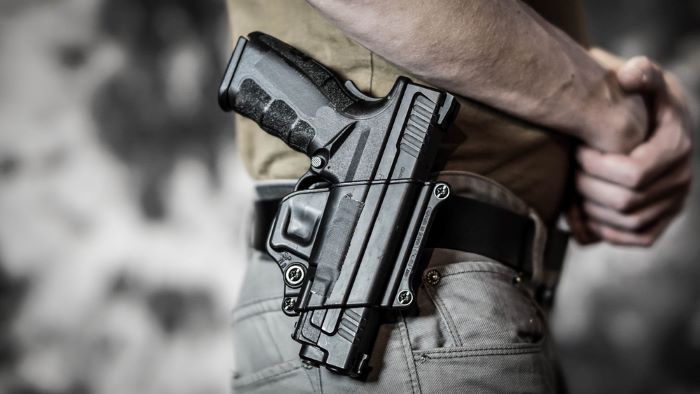Understanding the legal aspects of carrying a pistol for self-defense is crucial for anyone who chooses to arm themselves in this manner. Here our aim to explore various discuss of this topic, including the legal framework surrounding the right to carry firearms, the implications of carrying a pistol for self-defense, and the responsibilities that come with this right. It is important to note that laws can vary significantly from one jurisdiction to another, and therefore, specific legal advice should always be sought from a qualified attorney or legal expert in your area.
Legal Framework for Carrying a Pistol
In many countries, the right to bear arms is enshrined in the constitution or in specific laws and regulations. For example, in the United States, the Second Amendment to the Constitution protects an individual’s right to keep and bear arms. However, this right is subject to various federal, state, and local laws that regulate who can carry a weapon, what types of weapons can be carried, and how and where they can be carried (e.g., concealed carry versus open carry).
In contrast, other countries may have more stringent regulations, with outright bans on carrying firearms for self-defense or very strict criteria that must be met for a license to be granted. Therefore, the first step for anyone considering carrying a pistol for self-defense, such as the GLOCK 29, is to thoroughly understand the legal requirements and restrictions in their jurisdiction.
Obtaining a License to Carry
In jurisdictions where carrying a pistol is legal, obtaining a license typically involves several steps, including background checks, fingerprinting, and completing firearm safety training courses. The purpose of these requirements is to ensure that individuals who are granted the right to carry a firearm are responsible, law-abiding citizens who understand the legal and safety implications of carrying a weapon.
Applicants may be required to demonstrate a legitimate need for carrying a firearm for self-defense, and in some cases, may need to renew their license periodically. Failure to comply with these legal requirements can result in criminal charges and the loss of the right to carry a firearm.
The Implications of Carrying for Self-Defense
Carrying a pistol for self-defense comes with significant responsibilities. Individuals must be aware of the legal standards regarding the use of deadly force in self-defense situations. Generally, the use of deadly force is only justified when an individual reasonably believes that it is necessary to prevent imminent death or serious bodily harm to themselves or others.
Misunderstanding these legal standards can have serious consequences, including criminal prosecution and civil liability. Therefore, it’s crucial for individuals who carry firearms to be well-educated on the legalities surrounding the use of deadly force and to exercise extreme caution in any situation where it might be employed.
Safe Handling and Storage
Gun safety is paramount for anyone who carries a firearm. This includes practicing safe handling to prevent accidental discharges and ensuring secure storage to prevent access by unauthorized individuals, especially children. Many jurisdictions have specific laws regarding firearm storage, and failure to comply with these laws can lead to legal penalties, as well as unintended harm.
Legal Consequences of Misuse
The misuse of a firearm can have dire legal consequences, ranging from fines and confiscation of the firearm to criminal charges such as manslaughter or homicide. Furthermore, even in situations where the use of a firearm in self-defense is deemed legally justified, individuals may still face civil lawsuits from the perpetrator or their family.
Conclusion
Carrying a pistol for self-defense entails a deep understanding of the legal framework, stringent adherence to laws and regulations, and a commitment to safety and responsible ownership. Given the potential for legal and moral ramifications, it’s essential for individuals to carefully consider whether carrying a pistol is the right decision for their personal safety needs. Engaging in ongoing education and training, as well as staying informed about changes in laws and regulations, is critical for anyone who chooses to exercise their right to carry a firearm for self-defense.
Remember, this article provides a general overview and should not be construed as legal advice. Laws vary widely across different jurisdictions, and staying compliant requires keeping abreast of the specific legal requirements and restrictions in your area. Always consult with a legal professional for guidance on carrying a pistol for self-defense in accordance with local laws.

